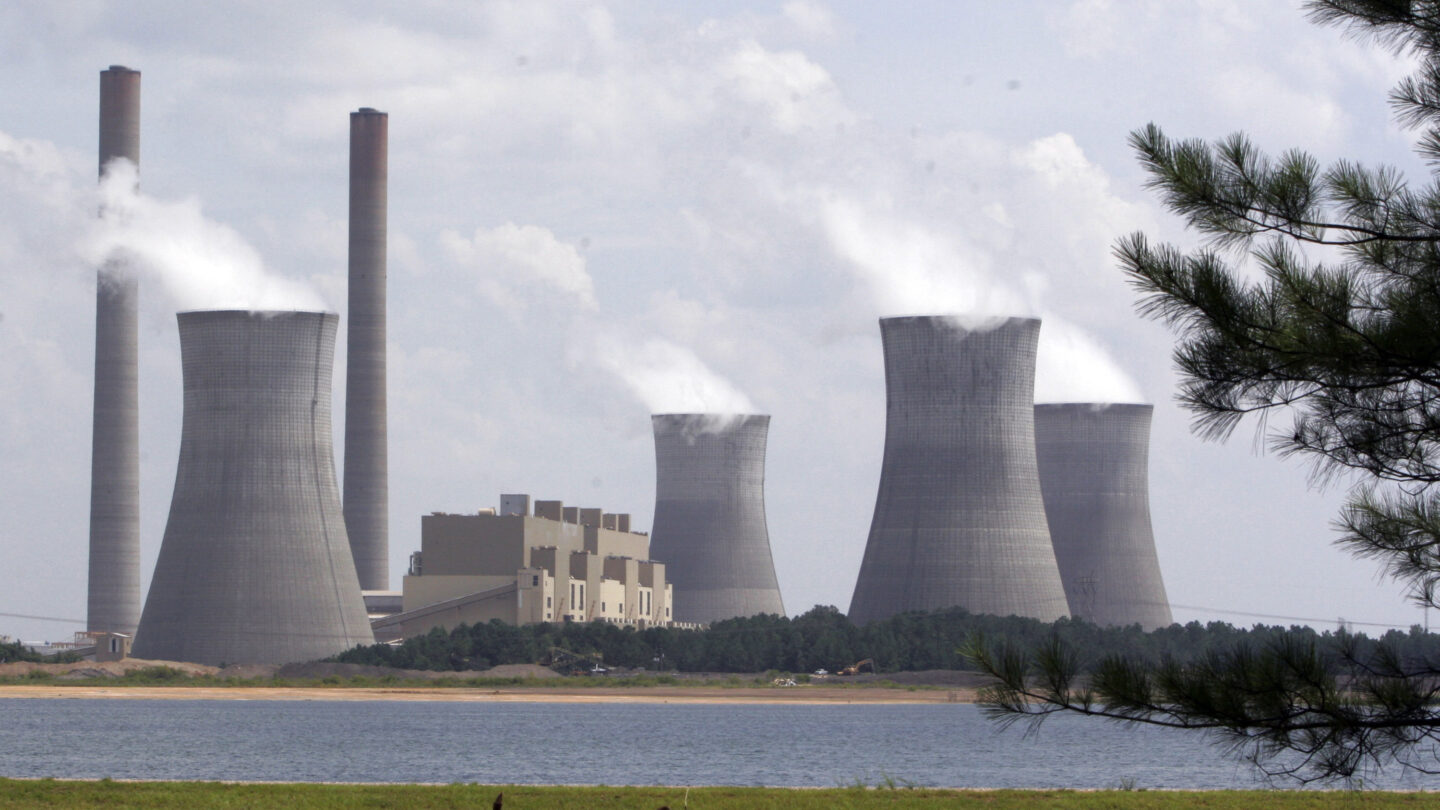Georgia's main utility is blocking climate policy, report finds

This coverage is made possible through a partnership with WABE and Grist, a nonprofit, independent media organization dedicated to telling stories of climate solutions and a just future.
A new report finds Georgia Power’s parent company is actively working against public policy to address climate change — despite the company’s own announced clean energy goal.
The analysis, released last week by U.K. think tank InfluenceMap, looks at public statements and behind-the-scenes action on climate policy, like letters to lawmakers and testimony about legislation.
It finds Southern Company is obstructing action on climate change and working to slow down the transition to clean energy. One example: the company’s support of Georgia’s law that prevents cities from banning gas appliances in new buildings.
Atlanta-based Southern Company, the parent of Georgia Power and other utilities in the Southeast, received one of the worst scores, alongside CenterPoint Energy in Texas.
Report co-author Kendra Haven said utilities like Southern Company and Georgia Power can have a huge influence on laws.
“We’ve seen cases where utilities are engaging over and over in the development of a bill until they get what they proposed, which is maybe a weakened version of that bill,” she said.
Southern Company did not respond to a request for comment. In the Washington Post, a spokesman touted the utility’s goal of net-zero emissions by 2050 and its decreasing use of coal. The number of coal units owned and operated by the company has dropped by 73% since 2007, the spokesman said.
Georgia Power does plan to stop burning coal to make electricity — but currently plans to replace some of it with gas, which still generates emissions that cause climate change.
The InfluenceMap analysis does not include utilities’ own emissions or energy sources because it’s focused on public policy.
In that arena, Southern Company has taken some action in support of decarbonization and clean energy. Earlier this year, the company joined other utilities in an open letter supporting clean energy tax credits in the Build Back Better plan that remains stalled in Congress.
But most of the company’s activity has gone in the other direction, the report finds.
“It’s not to say that everything that Southern has done is negative,” Haven said. “But based on hundreds of pieces of evidence, their score is under 50%, which indicates misalignment from the goals of the Paris Agreement.”
That agreement calls for sharp cuts to greenhouse gas emissions to rein in climate change.
The report also looks at utilities’ indirect influence on policy: the trade organizations they’re part of, and the actions those organizations take. Southern Company personnel sit on the boards of the American Gas Association and the National Association of Manufacturers, both of which scored poorly for their own actions opposing climate policy.
“Southern’s continued participation in some of these groups is alarming,” Haven said.








